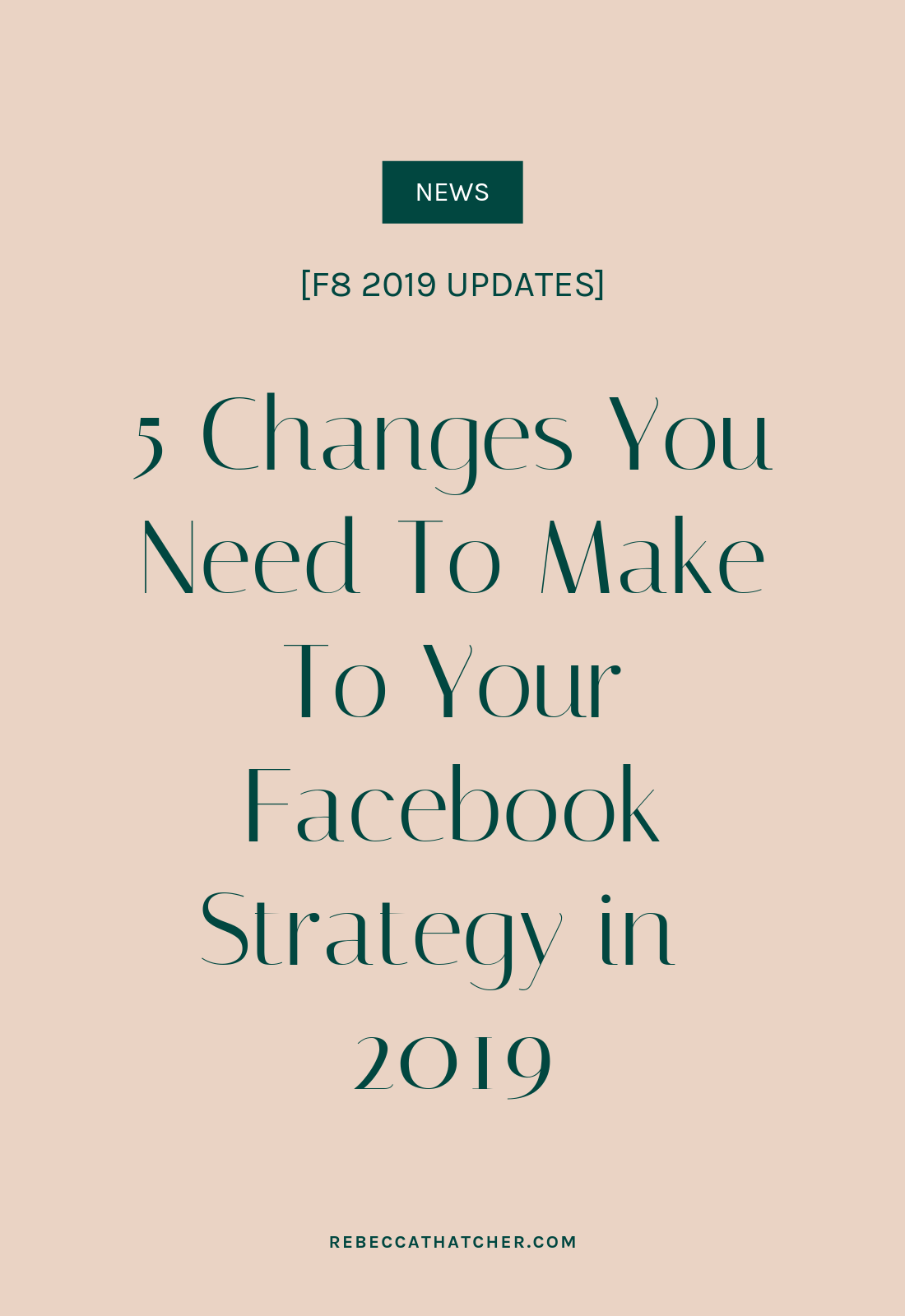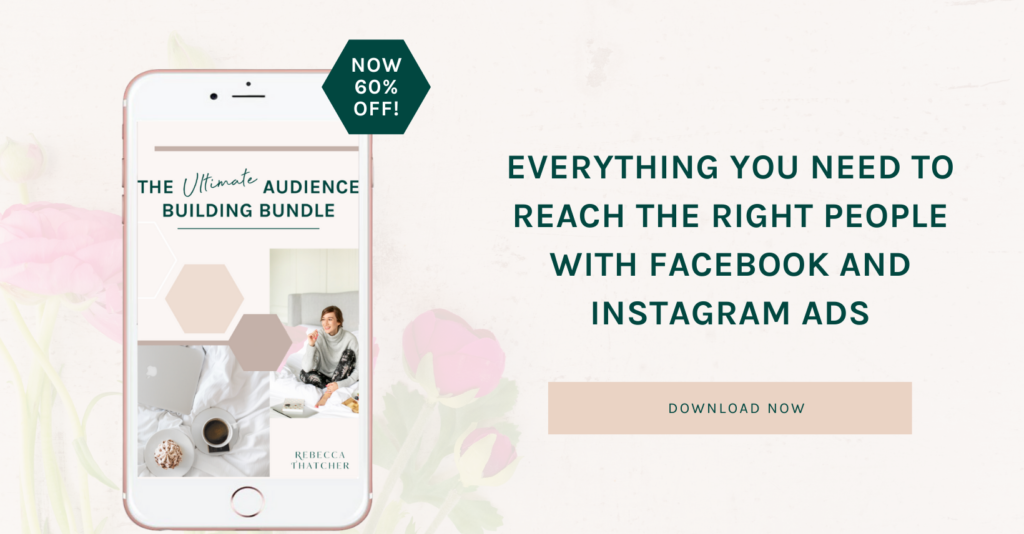
Last week digital marketing pros, social media managers and Facebook advertising experts travelled from far and wide to gather for the annual F8 Conference. It’s a chance for Mark Zuckerberg and the team at Facebook to share what they have been working on across their suite of apps.
They announced a whole host of exciting updates – especially for Facebook. So, what changes can we expect this year? And more importantly, how will they impact how we use Facebook for business?
Top updates to Facebook 2020:
- A complete redesign of the app and desktop version as we know it
- The spotlight will shine on Groups and Events
- Messenger is launching on desktop (and the app is getting smaller)
- Lead generation ads will be available on Messenger, as well as an appointment booking system
Sounds exciting, right? But what does this mean for the 60 million people who use Facebook to market their businesses?
As some of these changes are in BETA testing, and others are being rolled out as I type, we don’t yet know EXACTLY how our content marketing and advertising efforts will be affected. But knowing the direction they’re heading in means Facebook nerds like me can make an educated guess on what the next 12 months looks like for promoting your business on Facebook.
My predictions on how the F8 2020 updates will impact Facebook business pages, and the changes you need to make to stay on top…
Continue to support communities
Facebook groups have been edging their way towards the spotlight for the past year and now, they stand front and centre. With a huge focus on privacy trending through every update at F8, it’s no surprise that Facebook is giving groups an extra push.
Not only will they get more space on the redesigned interface, but updates from groups will now be prioritised in the newsfeed. And this isn’t the only place you can expect to see content from your favourite groups. That’s right, they are getting their own dedicated tab, filled with personalised content from the Groups you have joined.
Over 400 million Facebook users belong to a group they find meaningful. And we all know Facebook LOVE ‘meaningful interactions’ as it’s part of their global strategy. So, what does this mean for our businesses?
If a Facebook Group is part of your marketing strategy already, keep doing what you’re doing. And if you’ve let engagement fall, pick things back up again right now! The organic growth of your group is highly likely to increase as Facebook makes it easier for users to discover new Groups. So make sure your community is active and engaged.
You can also share content into Groups you belong to more easily too which means the number of member posts in your group is about to rocket!
If you don’t have a Group as part of your marketing strategy, now is the time to consider if it’s right for your business.

‘Privacy is the future’ – Mark Zuckerberg
Increase your ad spend
Organic reach – does it even exist anymore? Having watched reach decline over the last 10 years of Facebook ad management, my opinion is no. In order to succeed with Facebook marketing for your business, you have to allocate a monthly budget.
With increased exposure for Groups and Events, advertising costs will likely increase as we fight for space in the newsfeed. Only time will tell with this one. But if you have a killer ad strategy in place that means you are generating great, low-cost results right now, you shouldn’t be worried.
If you aren’t advertising on Facebook currently, now is the time to do so. If you’re not sure how to reach the RIGHT people with your ad campaigns, my Audience Building Bundle will help you.
Include Messenger in your strategy
Whether you use bots, have a customer service team answering queries or you dedicate time each week to responding to messages yourself, connecting with prospects and customers through Messenger is huge.
Over 40 million businesses use Messenger to interact with their audience. And with the updates Facebook are rolling out to the app and new desktop version, this is only going to increase.
Facebook want to make Messenger the fastest, lightest messaging app out there, and Project LightSpeed is well-underway to making that happen. The app will be just 20% of its current size. This, teamed with the fact that some of the most exciting updates are happening in Messenger (booking appointment experience, lead generation ads, desktop version), indicates that businesses have only just touched the surface with marketing on this private space.
In the past, Messenger has been treated as an add-on for businesses. A way to connect with customers one-to-one when needed – usually within a customer service remit. But as bots help us to create personalised experiences, build better relationships with customers and generate sales, Messenger has evolved to be hot real-estate that so many businesses are yet to take advantage of.
So, it’s important you consider Messenger as a separate channel within your Facebook strategy, how it can serve your business, and most importantly, your customers.
Your page is an information source
We’ve learnt that private conversations and small communities are Facebook’s strategic focus for the foreseeable future. We know that outside of the meaningful connections we create in Groups, Messenger is the home to our private customer interactions. So where does this leave your Facebook business page?
Our strategy for Facebook should now divided into three main content strategies; one for our page, for our Group and now for Messenger. If the majority of engagement is being driven towards private spaces like Groups and Messenger, I can only assume that our Facebook pages will live to serve as an information hub. Just like our websites.
Engagement and growth will still be key for pages. But as we move towards hidden likes (in Instagram) and away from vanity metrics, perhaps page engagement will be solely measured on video retention time, how long we spend reading a post and the actions users take after consuming the page content, opposed to on the post itself.
Now this is complete speculation and I’m as intrigued as you are to see how things pan out. But from what Facebook have shared, it does beg the question: What purpose do Facebook pages serve in 2020?
Prepare for high expectations from customers
As more and more businesses create easy, fast ways for customers to reach them via Messenger, consumer expectations will only increase further.
Whether it’s to make a booking, ask a question, make a payment or amend an order, your customers will expect to be able to take any and all actions through a quick and simple tool like Messenger.
Remember, you are penalised for driving users away from Facebook (hence why they are developing their own in-app booking system). So you’d be wise to consider integrating any process you currently have within your business, into Messenger or other Facebook-owned tools.
The speed of social media continues to drive customer expectations up. So you need to ensure you have the means to meet their needs and create a great experience.
hello you
I help digital coaches & entrepreneurs to grow their audience and make more sales online, through the magic of funnels and ads!
